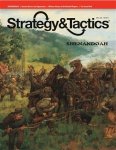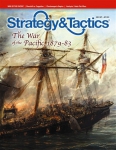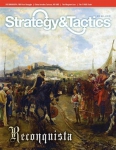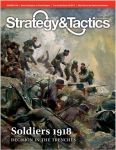-
Załączniki bezpieczeństwa
Załczniki do produktuZałączniki dotyczące bezpieczeństwa produktu zawierają informacje o opakowaniu produktu i mogą dostarczać kluczowych informacji dotyczących bezpieczeństwa konkretnego produktu
-
Informacje o producencie
Informacje o producencieInformacje dotyczące produktu obejmują adres i powiązane dane producenta produktu.Decision Games
-
Osoba odpowiedzialna w UE
Osoba odpowiedzialna w UEPodmiot gospodarczy z siedzibą w UE zapewniający zgodność produktu z wymaganymi przepisami.
The rules present sub-systems that show the wild fluctuations of fortune that historically affected the forces of both sides, from heroic fights to blunders that led to some of the more infamous military actions of those times.
Boots 2 uses an interactive game turn in which both players command an overall force made up of several sub-commands. During each turn, players alternate picking "command markers," which designate the sub-command within their force they may then use to conduct operations. The player then moves units of that sub-command and, at the completion of its movement, may conduct attacks with the units of that same sub-command. Play then passes to the other player, who similarly picks a marker and moves and fights. That procedure continues until all command markers have been picked. Additionally, certain events cause players to pick "heroism markers" at random, which may generate anything from mad, impetuous charges to abject surrenders.
The rules are divided into the standard rules, which are common to all games in the system (Boots 1 will have appeared in S&T no. 236), and the scenario rules, which provide deployment and reinforcement instructions, as well as victory conditions, for each specific battle game.
This edition of Boots includes two games: Pershing: The Hunt for Poncho Villa, 1916; and Mad Anthony: War for Ohio, 1791-94.
In the Pershing game, each turn represents one month, and each hexagon on the map represents 10 miles across. US Army units, as well as those of the Mexican Federales forces, are battalions, regiments and brigades. Poncho Villa's units each represent correspondingly sized groups of combatants, with about 80 to 120 individuals per strength point.
In the Mad Anthony game, each turn represents between one week and one month, depending on the time of year, and each hexagon on the map represents 10 miles across. Units of maneuver for the US Army are primarily battalions, while Indian units are warbands, awarded one strength point for each 80 to 120 individuals within them.








